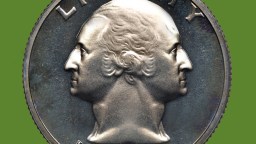Venture investors need to invest in Black-owned businesses

Credit: Big Think
- Abner Mason, CEO and founder of health care startup ConsejoSano, is calling for all venture capital firms in the United States to pledge to invest 13% of their funds in African American businesses.
- Currently, Black entrepreneurs receive less than 1% of all venture capital funding.
- The 13% target reflects the percentage of Black Americans and is a nod to the 13th Amendment.
The murder of George Floyd has brought America to a much-needed reckoning on the racism in American society. Young people are marching, white people are reading, and churches are preaching about ways we as people can transform the way we treat Black people. Notably, many business leaders are pledging to end racism. But once the marching ends what will be different in America?
As a Black business leader, this newfound desire to address America’s original sin is a breath of fresh air in the midst of this pandemic. But I wonder how long this new zeal to change will last and, more importantly, what practical steps and sacrifices will be made to make the promise to end racism real.
Here is one practical solution that all investors can take to make their promise real. I’m calling on all venture capital firms in the United States to pledge now to invest 13% of their funds in African American businesses. I suggest 13 as a target to both reflect the percentage of Black Americans and a nod to the 13th Amendment. I’m reaching out to friends in the social impact space to help me set up the organization that will monitor this.
Here is one practical solution that all investors can take to make their promise real. I’m calling on all venture capital firms in the United States to pledge now to invest 13% of their funds in African American businesses.
My life reflects both America at its best in terms of ending racism and at its worst.
As an African American CEO of the health care startup ConsejoSano, I’ve focused on using technology to connect low-income and multi-cultural people to care in our health care system where their needs are often overlooked. Also, I’ve lived a blessed life. I grew up in an integrated public school in North Carolina where my parents and church taught me never to judge a book by its cover. They taught me that not all white people were motivated by racism and to seek out white allies in my life path.
This advice paid off. I found my way out of NC to a prep school in New England where I was one of seven Black students out of three hundred. I then made my way to Harvard College where Black students were less than five percent of my freshman class of thousands. I faced a choice that most young Black men of my generation made: Will I define myself solely by my race or pretty much ignore my race, ignoring racists, and look for allies? I chose the allies path.
After a short stint in the management consulting field, I found myself working in state government in the MA Department of Transportation where I learned a powerful truth about life—good intentions are not enough. No one cared that we had good intentions to get buses to passengers, we had to get the buses out to waiting passengers. Visible results, not intentions mattered. This lesson speaks to me today when I consider America’s response to racism.
I went on to advise three governors and launched a nonprofit to address the AIDS crisis in Africa, helping to created what later would be called the PEPFAR program. What I learned through this entire career path was that I could pretty much sense and ignore racists and seek good white people at every level. These were my survival techniques.
This strategy hit a wall when I entered the venture capital arena launching a health tech company where I was asking wealthy white men to invest in the leadership of a Black man. In the more than 40 pitches I made to create our Series A, I encountered 99% white male investors who were blunt saying they were not investing in my product or projections; they would be investing in me. I could no longer follow my life strategy of ignoring investors with racist views. I was pitching the 1% of the 1% who lived lifestyles and had social worlds completely different from my own. We both could sense the cultural and lifestyle disconnect. Following my pitches I heard comments such as, ‘I’m not comfortable with you being in charge,’ or ‘I’d imagine you being good at sales,’ or ‘Let’s keep you as Chief Evangelist or something like that.’
What became clear to me was that uber-wealthy white men could imagine a Black leader as a minister not as a CEO. In my conversations with other Black startup leaders, I realized I was not alone. Then I looked at the data which confirmed my experience. I found only 1% of venture capital-funded startup founders are Black. Ultimately, I did find investors who believed in me and my product and I was successful in gaining my Series A through white male investors who cared.
Today, I’m no longer a young Black man navigating the corridors of white power, but even as a successful entrepreneur I’m still facing the greatest degree of discrimination I’ve ever encountered in my life. Corporations posting ‘Black Lives Matter’ is nice, but as I learned in my job in transportation, the young Black entrepreneurs can no longer praise good intentions. They need results.
If America is serious about the desire to end racism, Black Americans are going to have to follow the lead of Langston Hughes who famously said, “I will not take ‘but’ for an answer.”





